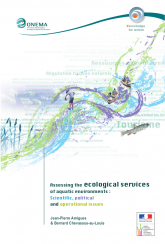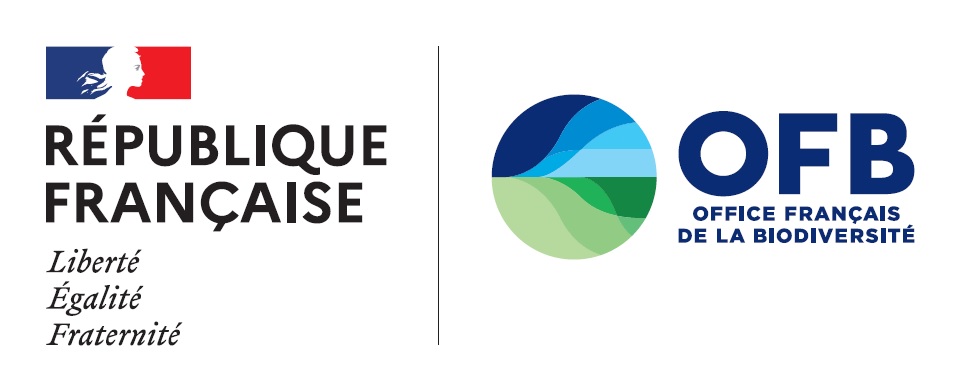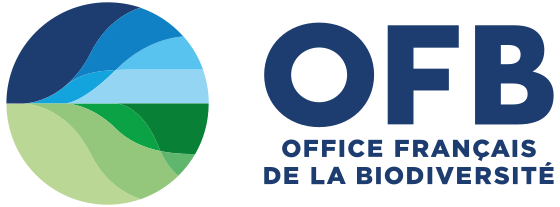Knowledge for action
The Knowledge for action series provides professionals in biodiversity sector (instructors, students, scientists, engineers, managers, etc.) with information on recent research and science-advice work.
A hardcopy of each document may be requested as long as stocks last. Please justify your request when writing to veronique.barre [a] afbiodiversite.fr
Contribution of stakeholder perceptions to managing aquatic environments |
Environmental managers work to promote, conserve and restore environments. However, any efforts toward rational management must be based on previously acquired knowledge on not only a given environment (e.g.what is an aquatic ecosystem and how does it function?), but also on the people and societies living nearby. This is because all environmental work takes place in a given cultural and social context. Management is therefore a question of knowledge and, above all, of the diversity of knowledge. But what is meant by knowledge on the environment?
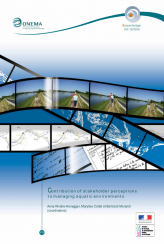
Freshwater fish and climate change. Current situation and adaptation strategies |
Aquatic environments constitute ecological treasure houses, represent a unique cultural heritage and provide society with important economic resources. What will be the consequences of climate change on the hydrology of aquatic environments? How will aquatic ecosystems and organisms react? What can be done to limit their vulnerability? Fish are emblematic life forms in rivers and an important resource for humans. They are one of the lifeforms that will potentially be impacted by climate change.
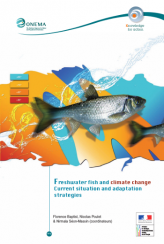
Obstacles to flow in rivers constitute a major source of breaks in ecological continuity. Given the vast array of regulatory requirements, notably the Water framework directive, and the many environmental issues involved in restoring the ecological continuity of aquatic environments, Onema decided to create a "tool" to assess and quantify the impacts of hydraulic structures on the free movement of fish.
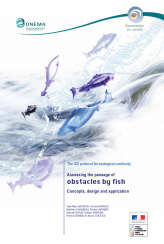
The Water framework directive has made the physical restoration of aquatic environments an essential component in public water-management policies. The document proposes a comprehensive framework with a description of the tools that may be used in an overall strategy designed to accompany stakeholders wishing to launch a hydromorphological-restoration project and ensure its success.
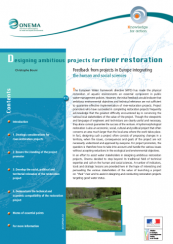
Economic analysis for managment of water and aquatic environments |
This book presents definitions, information and a discussion on the economic-analysis techniques used to manage water and aquatic environments. The goal is to assist in the operational implementation of economic analysis.
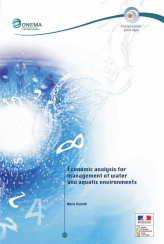
Structural characteristics of priority abstractions of use in designing protection systems |
The legal texts stipulate that an action plan must be defined and implemented for priority abstractions with the local stakeholders. In this difficult situation, the local stakeholders are all looking for effective, practical solutions in the field. To assist in this work, a study covering the entire country was carried out to gain information on suitable strategies taking into account specific, local conditions.
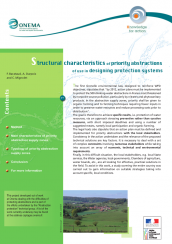
Natural seawater intrusion, whether coupled with an anthropogenic influence or not, risks contaminating the freshwater contained in the underground reservoirs. This document presents, via examples, a number of tools that can be used to qualify seawater intrusion and the potential impact of a sea-level rise on salinity levels in coastal aquifers.
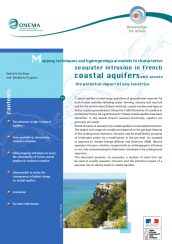
Improving control over nutrients by restoring river hydromorphology |
Scientific research on the relations between hydromorphology and nutrient-transformation processes has increased over the past few years. This review of the literature presents the most noteworthy aspects of current knowledge and a number of examples.
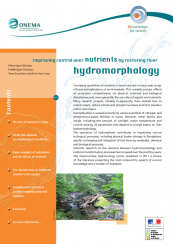
Observed trends in river flow rates in France |
On the whole, water resources in France are sufficient, however, there are significant differences between regions and times of year. Local shortages have increasingly led to restrictive measures on water usage. Why do water shortages occur? Are water resources in fact becoming more rare? Is this situation linked to excessive human usage or climate change? This document studies the fluctuations in water resources caused by climate factors in order to answer these questions.
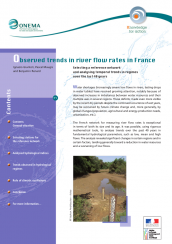
In a context of climate change and biodiversity loss, the notion of ecological services has rapidly gained ground in political debates. The goal of good ecological status, set by the European water framework directive in 2000, has led to major efforts to preserve and restore aquatic environments. The ecological services provided by aquatic environments are now a topic of growing interest to water managers and, more generally, to all stakeholders in society interested in the quality and sustainable management of aquatic environments.
